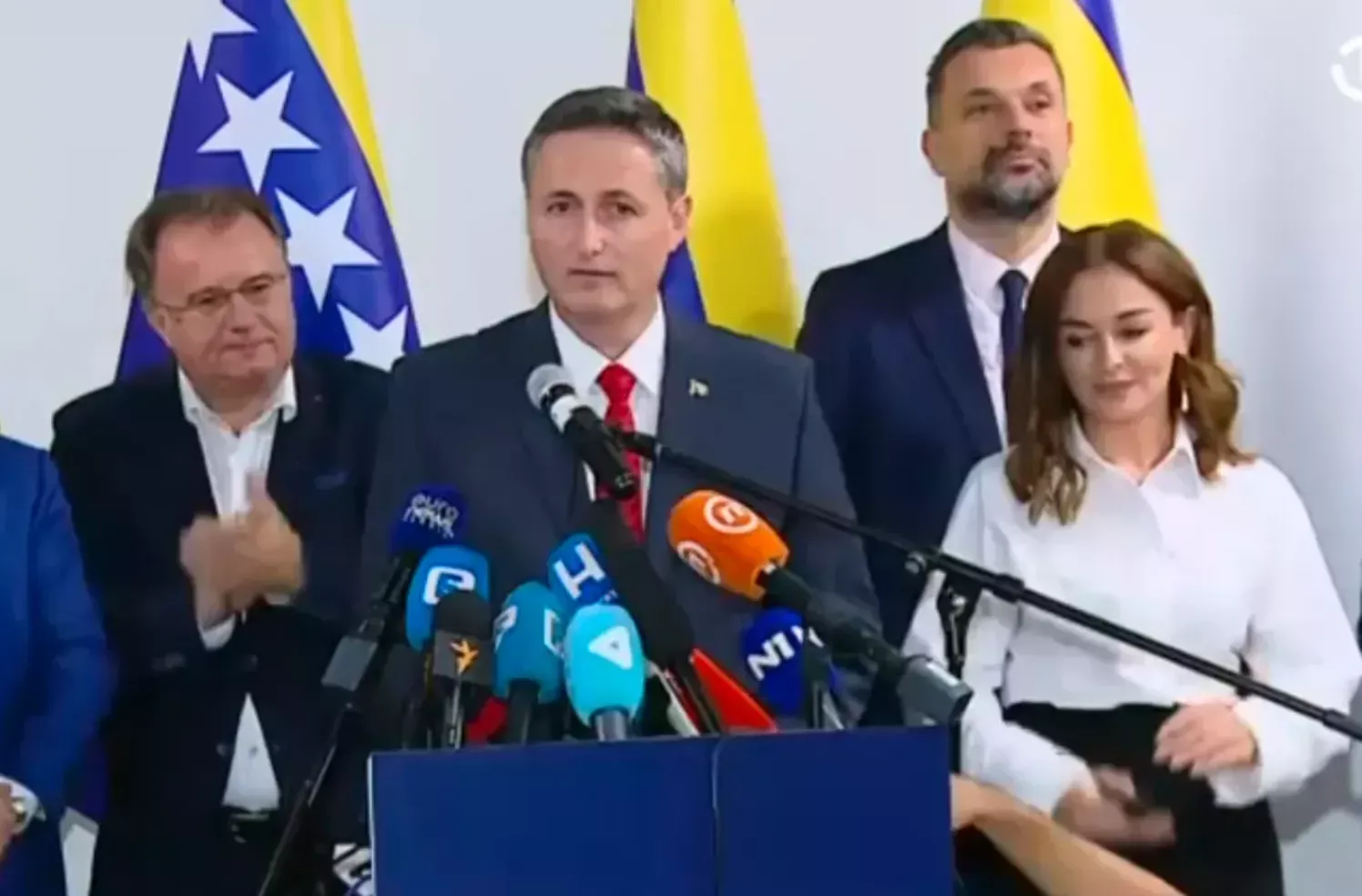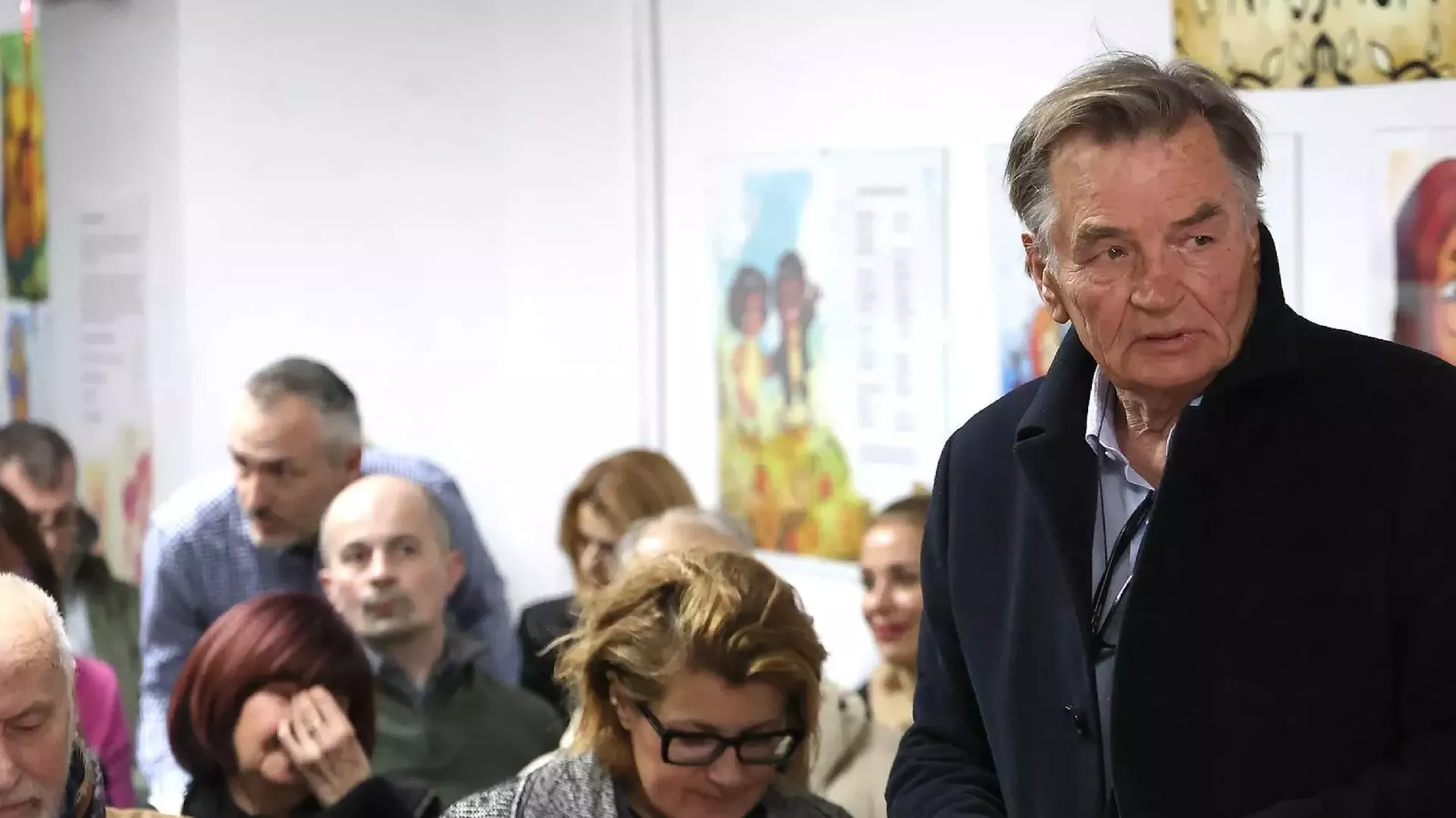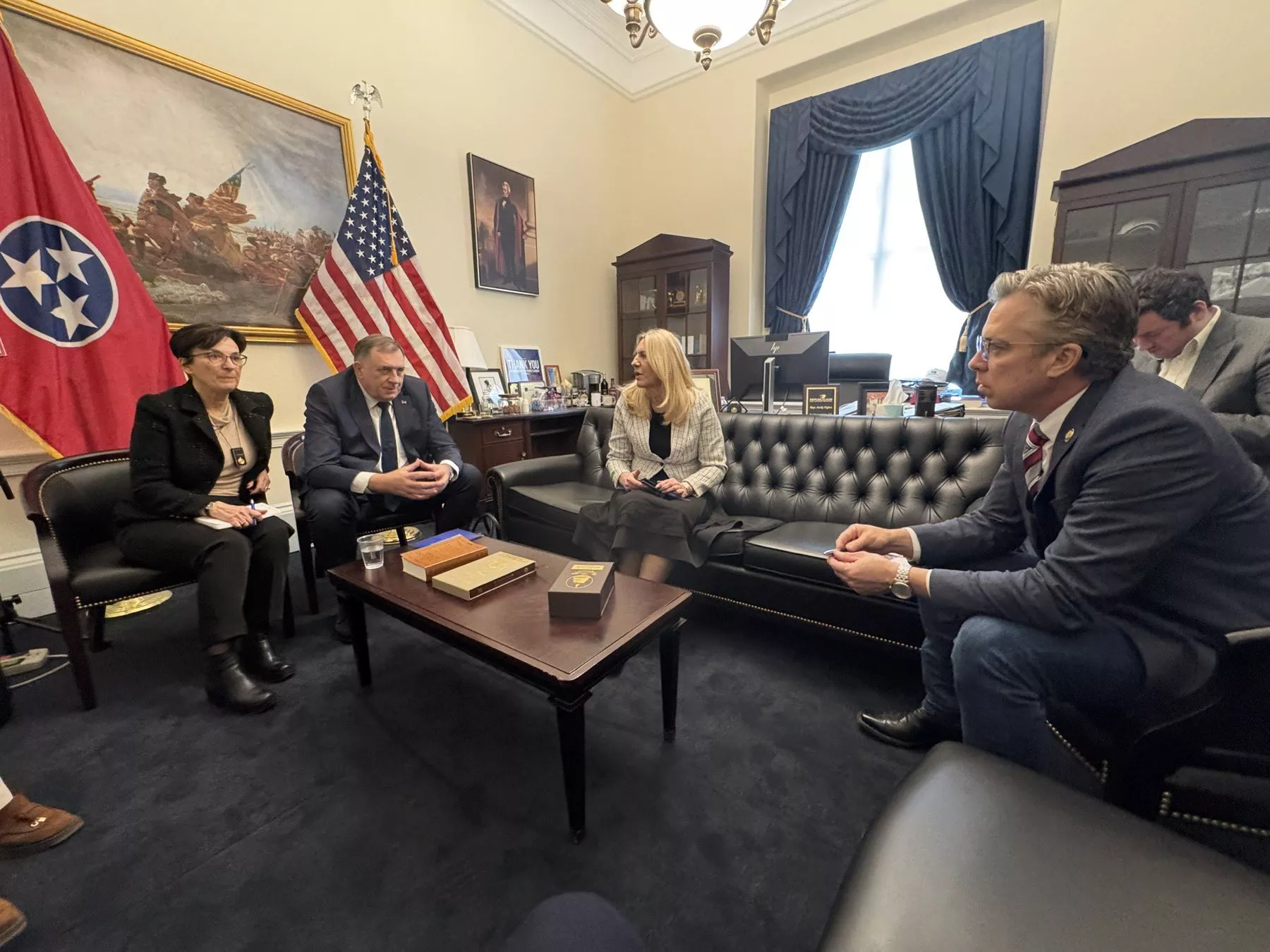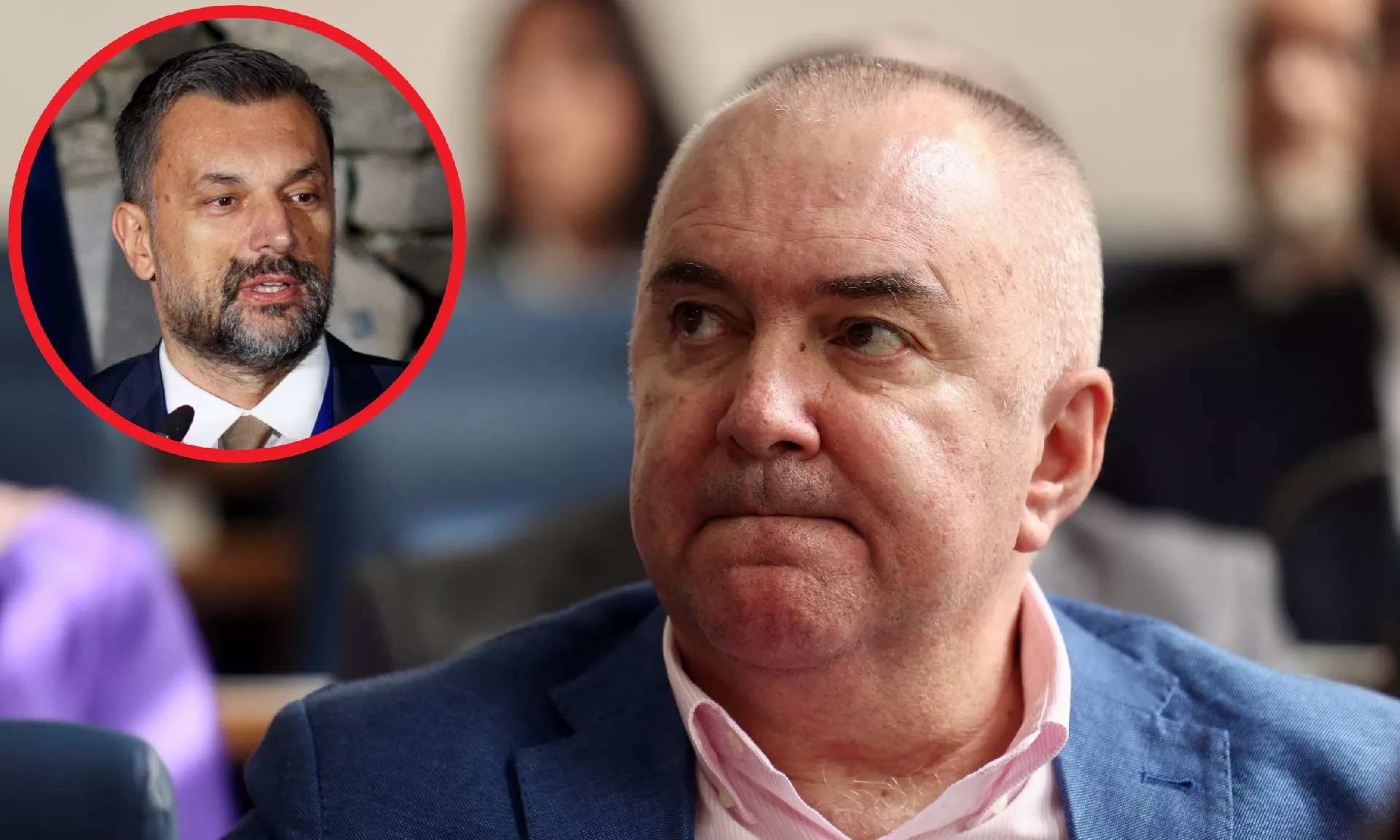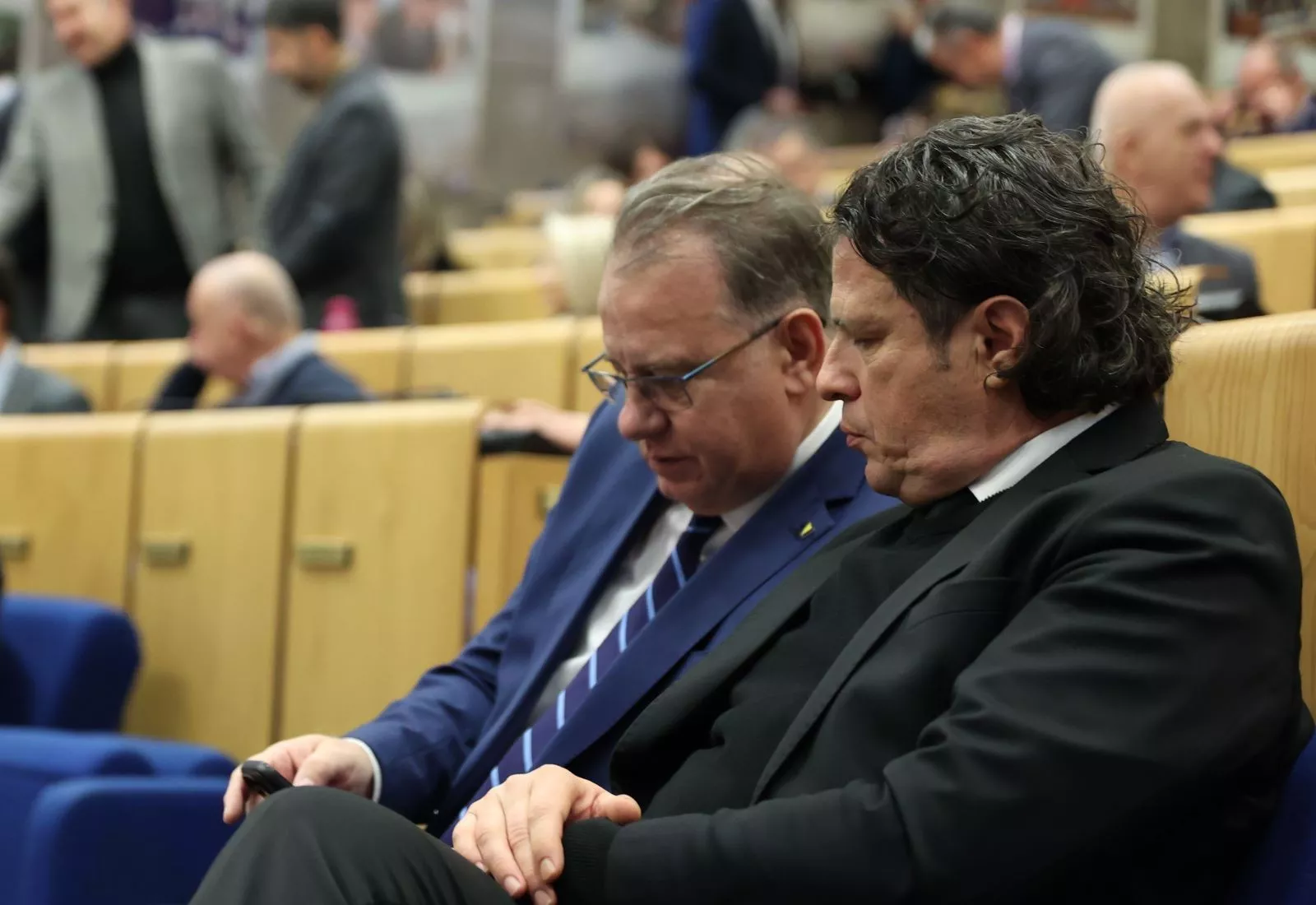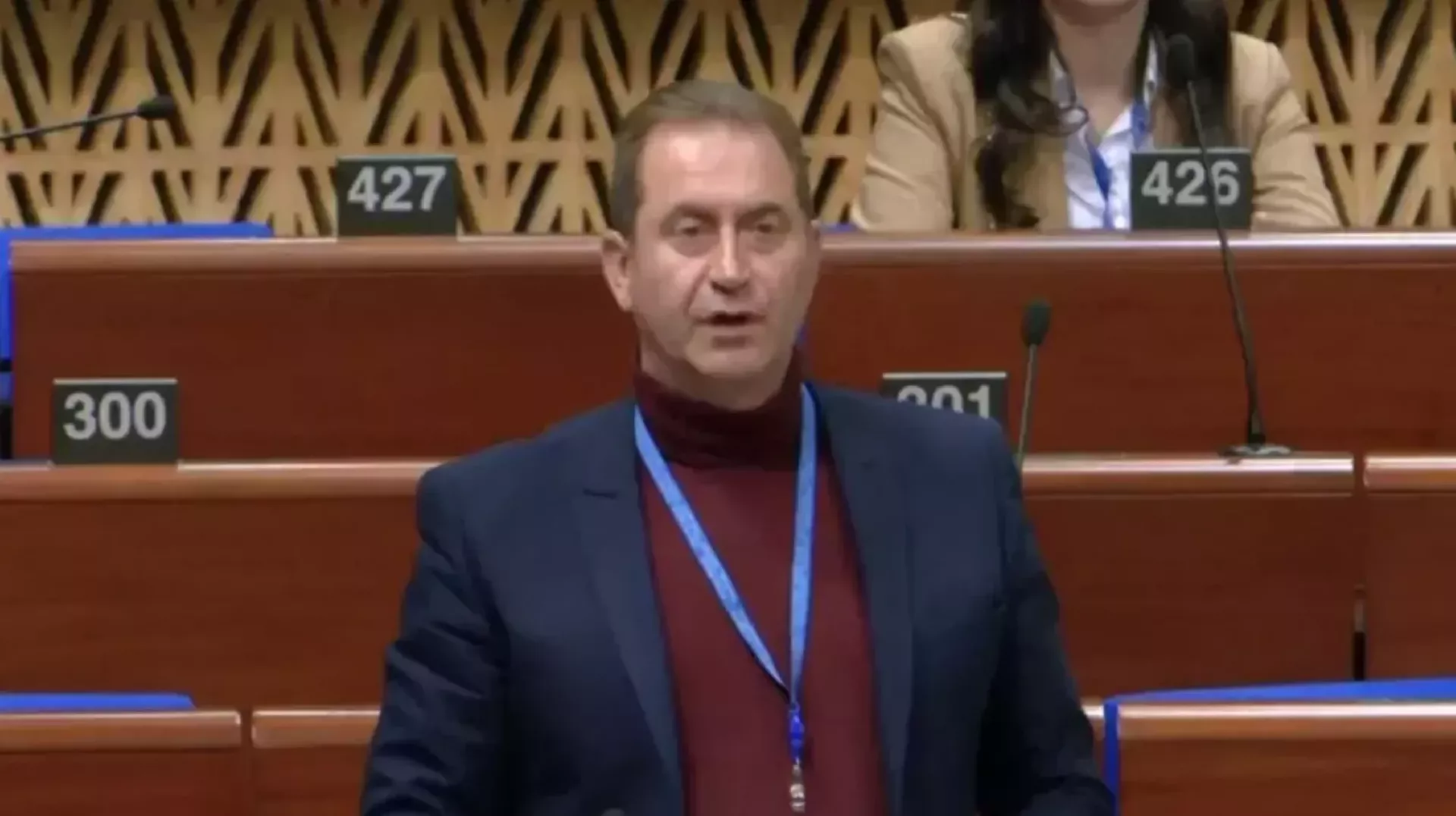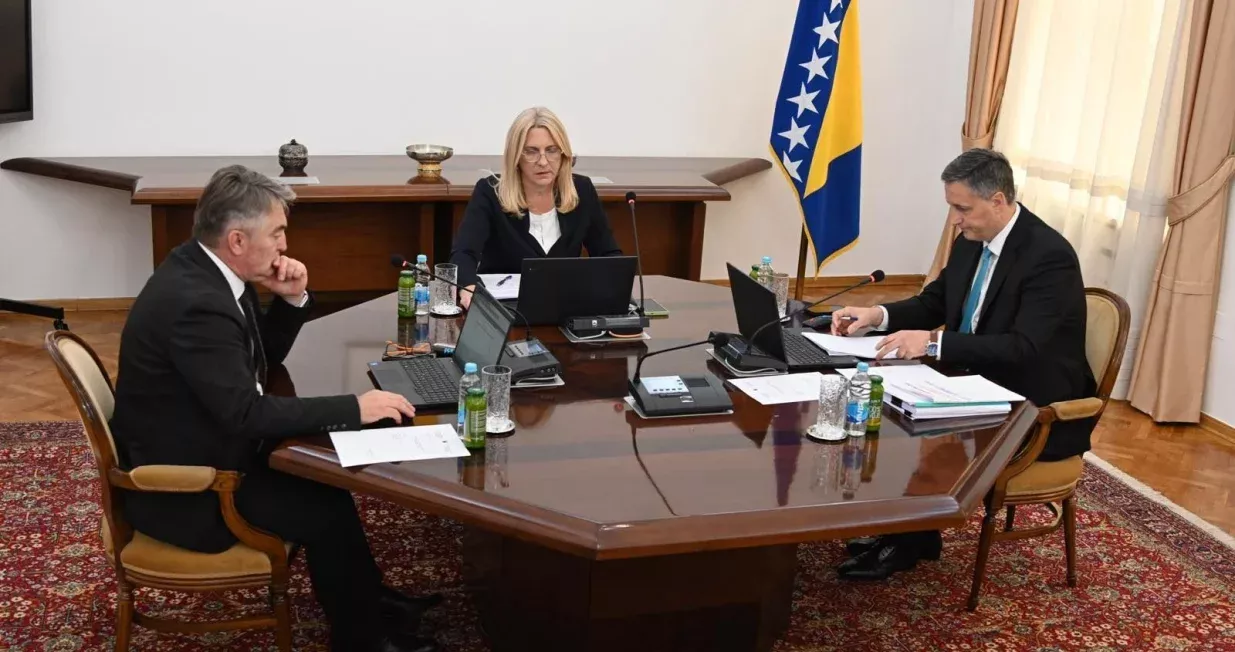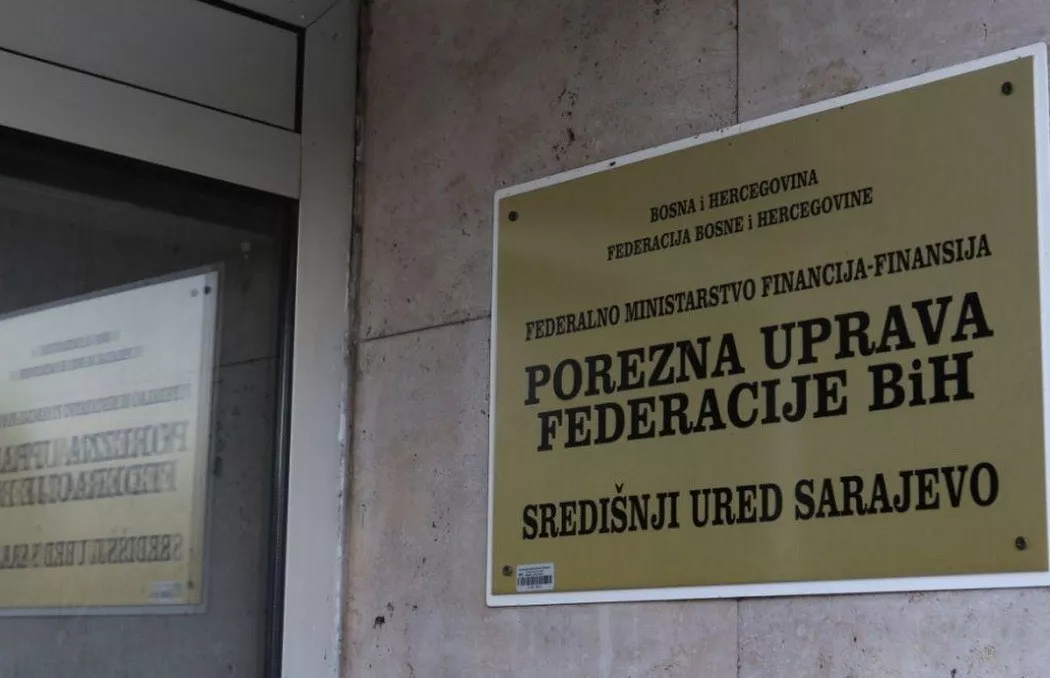

.jpg.webp)
On 20 January 2016, NATO HQ Sarajevo marked 20th anniversary of its mission in BiH. At the event marking the anniversary, NHQSa Commander, U.S. Army Brigadier General Giselle Wilz said that 'Bosnia and Herzegovina is well on its way to Euro-Atlantic integration'.
BH media have been reporting, for quite some time, a lack of political consensus among BH politicians about accession of BiH to NATO as the main stumbling block in what has been years long and demanding process.
The Defence Reform entails the creation of a single defence establishment and single military force in Bosnia and Herzegovina under fully functioning state-level command and control, and the restructuring of the Armed Forces of Bosnia and Herzegovina to meet the NATO requirements which would facilitate the integration of Bosnia and Herzegovina in Euro-Atlantic processes and organizations – Partnership for Peace, the NATO and the EU.
Brigadier General Giselle M. Wilz assumed duties as the Commander and Senior Military Representative of the NATO HQ in Sarajevo in June 2015. Her main role is to advise the BiH government on defence and security sector reform and PfP programmes, and to command NATO forces operating in Bosnia and Herzegovina.
The interview was an opportunity to assess the progress of NATO in BiH in respect of its important role in implementing the Dayton Peace Agreement, the gains that have been made as regards the on-going Defence Reform as the NATO's key priority for Bosnia and Herzegovina and all the hurdles in the process.
PATRIA: Destination NATO: Defence Reform in Bosnia and Herzegovina, 2003–13, report published in 2013 states that the defence reform 'has been more successful than any other reform in BiH'. Would you agree with this statement? What is the main result of this reform?
Wilz: I would agree with that but my opinion comes from the fact that I'm working in the defence sector. I think that some of the greatest successes go all the way back; with the significant defence sector reform, creation of BiH Ministry of Defence and the BiH Armed Forces. That was an incredible success. A lot of people said it would never happen. And it happened. So just from that perspective, that reform initiative is one of the greatest successes. But there is still a lot of work to be done because any time you create one army out of what was essentially 3 to 2 to 1, there's a lot of processes and standardizations that have to happen from a reform perspective. It's got to be transparent and that's across the board so whether that's defence review in terms of the size of your army, how you are going to man the army, how you are going to equip them, how you are going to assure that all those processes are in place so that they remain under the democratic control of the elected government officials. So, lot of work to do but by far probably one of the greatest success stories in terms of reform.
PATRIA: Is the process of Defence Reform complete? If not, what remains to be done?
Wilz: I would say that we are still in the early stages even though we have come a long way. I don't want to take away from the success that they have had. But when it comes to true reform of structures and capabilities - and we are talking about the defence review - the size of the army, capability of the army, what does B&H need to ensure for the security and safety of its citizens – from that perspective, those are the reforms we still need to work on. And NATO and PfP are bigger than just the military. When we talk about the NATO Membership Action Plan (MAP), what we are really talking about is a roadmap, the one that assures all the reforms and transparency across all the ministries, not just defence ministry but all, meet the requirements that any democratic society would want to meet. So, there's a lot more work to be done but we have made a great progress.
PATRIA: Accession of BiH to NATO should strengthen stability and security of the state but also stability and security in the region, once other Balkan countries will have integrated in NATO. End of 2015 was marked by big headlines in European media about another war threat in the Balkans. Irrespective of validity of such war threat estimates, do you believe that accession to NATO of the Balkans countries would put a stop on these ‘seasonal’ threats to peace?
Wilz: I do. But it's the common sense. It is strength in the numbers and it is strength in alliance of what members agree to when they become part of NATO. This is bigger than just military; it's about being able to reach out to the diplomatic side, it’s about democracy and rule of law. So any time you have democratic values and rule of law and united alliance that says we are going to take care of peace and security, then of course it is going to create more stability. Because citizens want to know that it is bigger than just them. There is million other benefits out there but the primary one is to provide the environment to ensure the citizens of B&H can live, work and prosper together. And that's what NATO alliance does for a country. But I will tell you that equally the reforms, just following the roadmap can create security in itself because the country becomes more transparent, because there is more demand on the political system to ensure that they are doing their jobs. So just in the reform process, you can create security in and by itself.
PATRIA: BH government officials often refer to the accession of BiH to NATO as one of the top priorities for the country. Is that mere lip service or have they supported such declarations with concrete and timely actions? On that note, are you pleased with the degree of the cooperation with the local government?
Wilz: I think that the cooperation has actually been really good. The relationship between my advisory team and colleagues in BiH institutions is a trusted relationship. There are many people at the working and intermediate levels who want nothing more than to succeed and they are doing all the work that is they can, but that work is sometimes slowed down by the lack of consensus from the political parties. People and personalities have changed and with that so has the dialogue. So you don't have the exact same consensus you had when BiH joined PfP, but you do have the agreement that everybody believes that MAP – the Membership Action Plan – is good. Whether BiH ever wants to be a full NATO member or just a credible partner. So they are all saying that out loud. The problem is that the political process is still difficult and this slows progress to even activating the MAP. But from the cooperation perspective, the work that's being done is very good.
PATRIA: When you talked about 'political problems', did you mean the lack of political consensus in terms of accession to NATO?
Wilz: Yes, it is the lack of consensus. Even when we hear words from parties saying we are only going to join NATO if Serbia does, what Serbia is doing in terms of their partnership with NATO is a high level, professional and committed relationship. Serbia is investing time and resources in significant reforms and commitment to the defense reform and wider democratic processes, and that’s really what the integration process into NATO is all about. This is where the value of integration process lies for all the citizens of Bosnia and Herzegovina.
PATRIA: BiH is not even halfway through the registration process of immovable property, which is one of the conditions for activation of the MAP. Are you optimistic about BiH completing this task within some sensible deadline? What kind of advice could you give to the relevant officials in that respect?
Wilz: Activating MAP is a little bit more complicated than anybody wants to say it is because there is a lot of technical work to be done. And a lot of the work is being done, again, at the worker level. And we believe we can get through that. We believe if there is political will, political consensus, then BiH should be able to meet the technical conditions and unlock the MAP. The process of registration of immovable defence properties in Republika Srpska is currently on hold pending the court case of Han Pijesak, which we believe will have a positive outcome I am optimistic because I believe that there is enough good work and enough people care about it, that eventually, people will say the MAP is a good thing for this country. Don't worry about joining NATO today, worry about the roadmap, reforms that are associated with it across the ministries, and that are supposed to impact the whole BiH society.
PATRIA: Security is an increasing problem in BiH – or so is the common belief. Does your own assessment of the present situation agree with that? What would accession to NATO bring to BiH in respect of security?
Wilz: There is no country in the world that does not have security concerns. Because it is a global concern and it is different for each country. Here, we don’t talk only about the defence sector, but the entire security apparatus. It is law enforcement, border control, political will and the judiciary system... I believe that BiH police forces are becoming more and more professional every day, SIPA is becoming more and more professional every day, the border police is very professional and the Armed Forces, too. You can take a look at the United States or countries of Western Europe, or anywhere in the world, and there are still security concerns because threats have changed. So you are still building the system in this country, and there are additional reforms that need to be made. But I wouldn't say that it is more fragile here than in some other aspiring nations.
PATRIA: Do you believe that citizens are sufficiently informed about the importance and benefits of accession of BiH to NATO? What has NATO HQ done in that respect? What should BH government do in that regard?
Wilz: I don't think citizens are as informed and part of that is, there is so much in the newspapers and in the news about everything else. The continued political stand-ups and all that. But obviously that's not much different than in the United States right now either – if you turn on the CNN, all you get is presidential debates so it is hard to know even what is going on in the United States if I'm watching the news. So that's part of the problem. We are not focusing on the things that really matter to people. But I think, once you start working on the reforms, when you start talking about rule of law and all those things that the country has to do achieve both EU and NATO accession, it will start becoming more evident to the population. I speak whenever I can, I like to get out to the universities, I'd like to be able to do more of it... It is not about me going there and saying that NATO is the best thing, the citizens of this country need to decide what is the best thing for them and for this country. That's the bottom line. All I'm saying is it is the responsibility of every citizen to be informed, and that's not nightly news in the newspapers, it's about self-education, it is about asking hard questions, it is about going out and seeing what NATO is about. I independently can't change the minds of all people in BiH. But they can become educated, they cannot take everything for face value and look a little deeper. They have great relationships with people in other countries... Families are big... See what NATO and the EU have done for them. Look at your neighbors. So NATO is not the lead in getting the message out there – that is a national decision and the nation's responsibility to inform its citizens. But we do everything we can to support. So does the UK Embassy, they are the NATO contact point embassy so we try to promote NATO in terms of educating people about NATO and what NATO can do for you. I would love to do more but these activities are not in my primary mandate. Instead, they should become a part of national responsibility, and we encourage local institutions to continue investing efforts in this regard
PATRIA: Bosnia and Herzegovina, on Monday 15 February, officially applied to join the EU. The public has been divided – some are saying B&H has not yet met the necessary conditions and this has been a premature move; others are saying let's make a move and see what happens. If we look at the EU application in relation to the aforementioned preparations for NATO accession, do you think that was a good and timely move?
Wilz: That question is probably better for someone who has better understanding of all the things required to become part of the EU, or somebody that's been here longer, to see some of the forward steps and backward steps, but I often tell people that it is really hard to eat a whole apple at one time – you got to take smaller bites. Citizens of this country need to know that the country is moving forward. And a lot of the time, just by the sure will of its citizens wanting to be more and better, more democratic, more reformed, those things can be very positive. So I hope that the application is accepted and that people will understand that the work is not completed. The application is all about starting the work, it's like Membership Action Plan with NATO. That's when the work starts! Specific to NATO, BiH has been a very valuable partner, participating in NATO led Peace Support Operations and becoming a part of a wider security umbrella. But what we refer to with Membership Action Plan is the entire country, not just the armed forces. If you take a look at the EU application, it's across the spectrum of all the institutions. So I think it can be very positive. It can be a sign to the citizens of this country that Bosnia and Herzegovina is moving forward.
